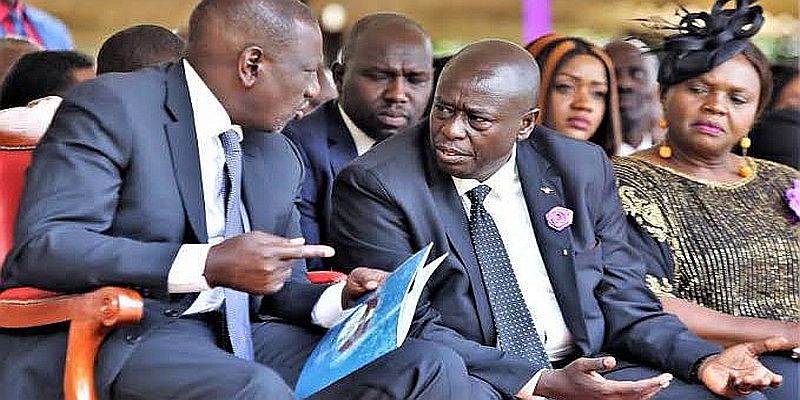Kenya: Escalating Tensions and Infighting Not Healthy

Once again, Kenya is on the grip of an ethnic debate at a time when the citizens are confronted by high cost of living and heavy taxation. There are foregoing concerns as to whether or not Kenya should be balkanized into its ethnic origins. Certainly, one would aptly say NO.
The escalating tensions and infighting among United Democratic Alliance (UDA) politicians, particularly those aligned with President William Ruto and Deputy President Rigathi Gachagua, indeed pose significant challenges for Kenya's political landscape. The UDA Leaders must put aside personal differences and work towards a common goal. Infighting will weaken the party and alienate voters.
UDA should articulate its vision for Kenya's future. Voters need to know what the party stands for beyond personality cult. Kenyans expect UDA to appeal to a broad spectrum of Kenyans, transcending ethnic lines. As such, addressing citizens' needs should be the priority. Kenya's challenges require collective efforts from leaders, citizens, and civil society. By addressing heavy taxes, promoting unity, creating jobs, and focusing on service delivery, Kenya can build a brighter future for all.
President Ruto recently issued a stern warning against the resurgence of ethnic politics during the 61st Madaraka Day celebrations in Bungoma County. He emphasized that Kenya has no room for tribal or ethnic-based politics and reaffirmed his commitment to a development-focused agenda. Kenya's history has shown that ethnic tensions can lead to violence, instability, and hinder progress.
The once harmonious relationship between President Ruto and Deputy President Gachagua is showing signs of strain reminiscent of the discord that plagued former President Uhuru Kenyatta's Jubilee Party. UDA Secretary General Cleophas Malala's recent call for the resignation of Transport Cabinet Secretary Kipchumba Murkomen and Public Service counterpart Moses Kuria further ignited political turmoil within the ruling party. Malala also targeted other UDA leaders, including Nyeri Governor Mutahi Kahiga and Githunguri MP Gathoni Wa Muchomba, for disciplinary actions. These leaders are perceived as close allies of President Ruto. Now Gachagua men, too, are digging in. They are giving no room for excuses. Such internal strife is likely to weaken the 'Yellow party's' cohesion and distracts from its core mission.
The 2022 General Election marked a shift towards issue-based politics in Kenya. President Ruto's administration promised to prioritize development and put people at the center and trash ethnic prejudice. A former Presidential candidate, Reuben Kigame, castigates the UDA feuds as bad and claims that the leaders of the day have not done better in promoting ethnic equity in redistribution of the national resources and jobs. Continued infighting will slow down healthcare, education, and infrastructure. It risks diverting attention away from the needs of ordinary citizens such as bringing the high taxes contained in the Finance Bill 2024 down.
Voters expect their leaders to work together for the common good. When politicians within the same party engage in public disputes, it erodes public confidence and raises questions about their ability to govern effectively. The UDA fights threaten Kenya's political stability, unity, and progress. It is crucial for leaders to prioritize the nation's interests over personal or factional agendas. Leaders should rise above ethnic divisions and focus on the well-being of all citizens, fair resource allocation, fair representation in government and dialogue among ethnic communities to foster understanding and cooperation.
Kenya, like many other countries, faces the challenge of balancing revenue collection through taxes with efficient service delivery. While taxes are necessary for funding public services, their impact on citizens' livelihoods cannot be ignored. The government must strike a delicate balance by ensuring that tax policies are fair, transparent, and equitable. High taxes can burden citizens, especially those in lower income brackets. Implementing progressive tax systems where higher-income individuals pay a larger share of their income in taxes and lower-income individuals pay less can help. The State should allocate tax revenue efficiently to essential services such as healthcare, education, infrastructure, and social safety nets.
By Kepher Otieno
Political observer and analyst based in Western Kenya.
